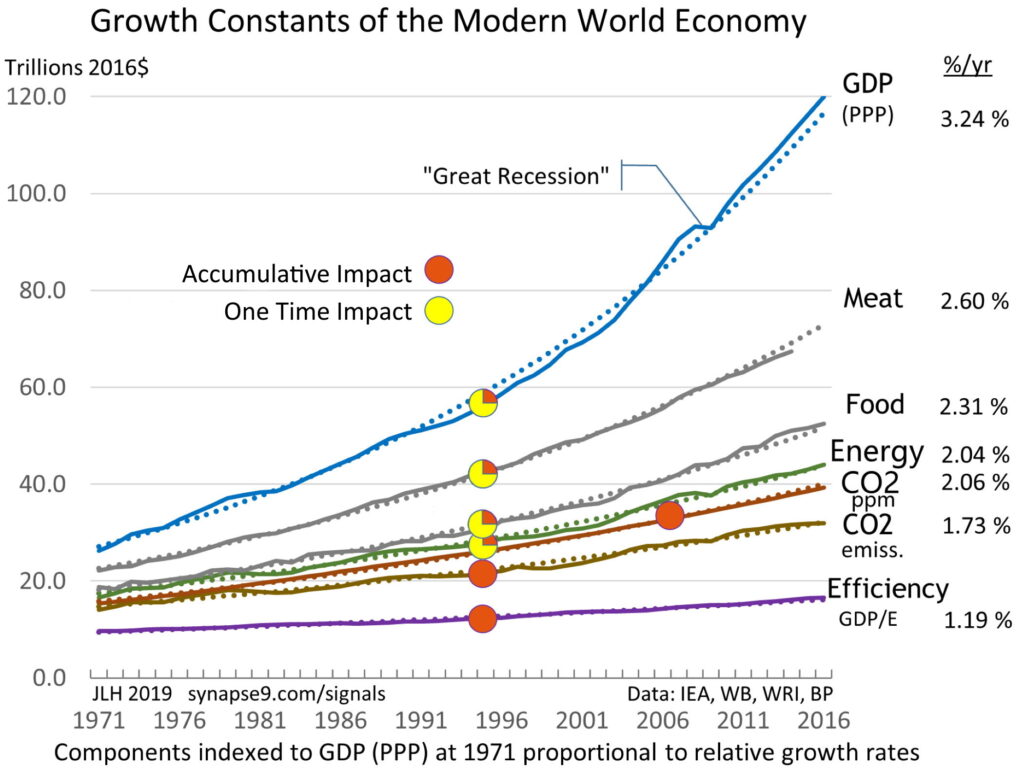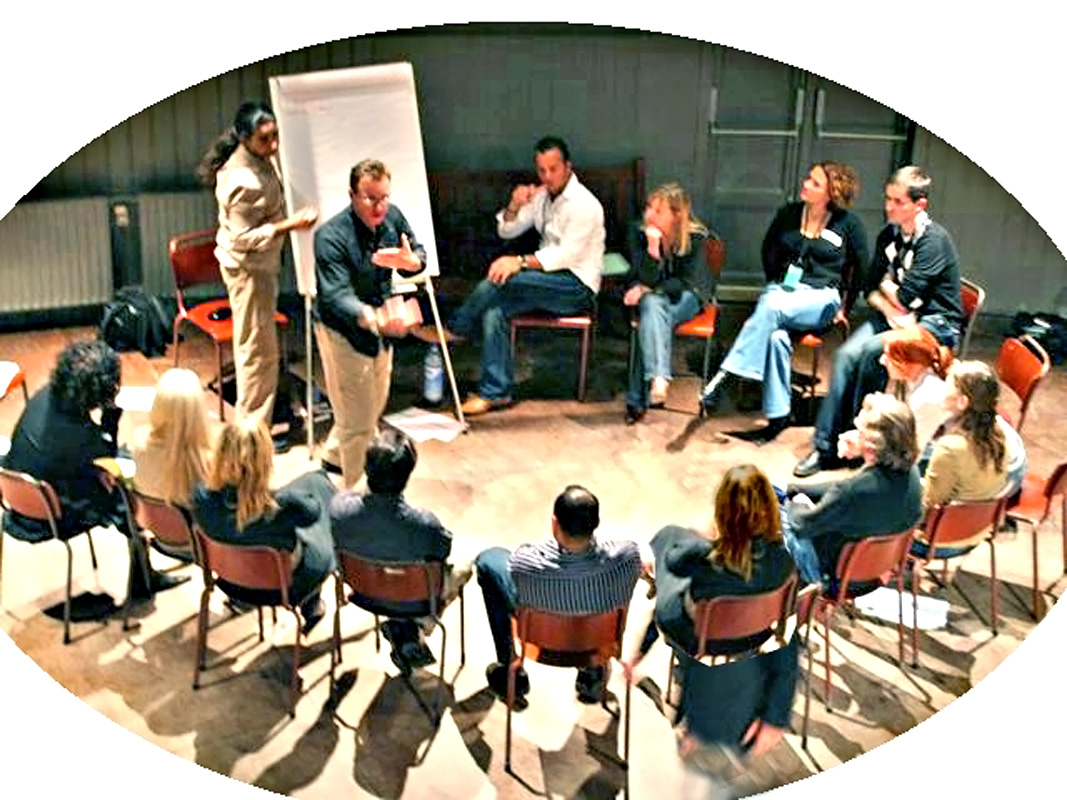The imbalance of information about the costs and rewards of money; the intensely felt rewards and zero information on the environmental costs, has fooled humanity for ages. Even in our effort to stop climate change today, we aim to pay for reorganizing all our energy uses to continue the compound growth of using them that has now become so destructive.
It’s the irony that provides traceable links to the causes.
ALL our impacts on the earth are from using energy to mine, disrupt, and degrade the natural world we so depend on. When the effect was very small it was of course not significant. Now that the damage is truly threatening our future most people, and the professions leading it, are still quite blind to the ever-faster rising threats. So our “prime societal directive” is still to keep using our power to multiply our power.
The proof is relatively simple. The major impacts of the economy on the earth are all growing in constant proportion to world GDP! That means they are directly connected.

Oh boy, should we ever pay attention now!
The question is just how long have we been deceived by the imbalance between our information on the costs and benefits of money and its powers?
I trace it back to all the boom and bust civilizations of the ancient Middle East, then Greece and then Rome, perfecting the delusion of financial power being cost-free with every grand failure. This time we’re caught, though, having seemingly exhausted the quick fixes for delaying the final loss of the earth as a good home, that so far we have not earned.
The rewards of money are keenly felt and the costs are quite invisible. So everyone who truly cares about civilization surviving in some healthy form has a role in shifting our consciousness. We should all start improving our sources of information on what the economy really does to life on earth. Here’s a rough guide, called:
The Top 100+ World Crises Growing with Growth
It’s an experimental but well-informed list of the many kinds so systemic crises for the world’s ecological and social systems, like how ever-increasing congestion pushes everyone and everything into more and more conflict!
We see that all over, right? Now study how growth regardless of limits causes it.
Think of who most needs to develop a feeling for what we’re all doing to ourselves?
Well, it’s all of us of course.
- Those in most direct control of it are the investors, businesspeople, financiers, and governments actively working to maximize the growth rate of our power as it corrupts all of life on earth!
- People with talents for reaching out to others are then especially needed, to reach out to the blind finance and governing communities, in effect now aggressively committing suicide for all of us.
Showered with rewards and blind to the costs it is very hard for them to feel emotionally threatened by destroying the earth.
Feeling the costs, though, as we do in overreaching personal relationships, is the cognitive steering that seems to give all of life its survival instincts, and so needed now to trigger our change culture.
________________________________________________
JLH

